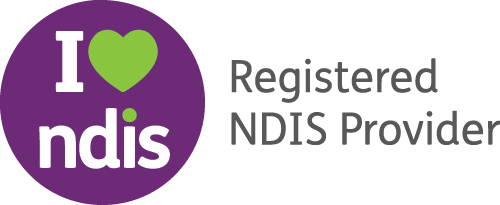Running Out of NDIS Funds? What to Do and How to Avoid It in the Future
Managing an NDIS plan can be overwhelming, especially when funding runs out faster than expected. Whether it’s due to changes in your needs, high support hours, or unexpected service costs, running low on funds can create stress, delays, and uncertainty.
The good news? You’re not alone, and there are steps you can take right now, plus strategies to help avoid the same issue in the future.
What to Do if You’re Running Out of Funding
1. Get a Clear Picture of What’s Left
Start by reviewing your current budget:
- Log into the
NDIS myplace portal
- Ask your
Plan Manager (if you have one) for a detailed usage report
- Identify whether it’s just one category running low, or the entire plan
Sometimes the issue is isolated to specific supports (like therapy or Core supports), while other areas may still have available funds.
2. Talk to Your Support Coordinator
If Support Coordination is part of your plan, now is the time to lean on it.
Your Support Coordinator can:
- Review your supports and usage patterns
- Help you prioritise essential services
- Suggest adjustments to bookings or pause non-critical supports
- Explore more cost-effective options or providers
- Assist with early
plan reassessment requests if needed
- Work with your Plan Manager to track usage across categories
While they can’t approve payments or move funds between categories, a Support Coordinator is key in helping you respond quickly and strategically.
3. Request a Plan Review
If your needs have changed, or your funding simply isn’t covering what it needs to, you may be eligible for a plan reassessment (also called a change of circumstances review).
Your Support Coordinator can support you with:
- Gathering reports, quotes, and provider evidence
- Completing the
Change of Circumstances form
- Submitting the request to the NDIA and following up if needed
What a Support Coordinator Can — and Can’t — Do
Support Coordinators are here to guide, connect, and advocate — but they don’t control your funding. Here’s what they’re responsible for (and what they’re not):
✔️ What a Support Coordinator is expected to do:
- Help you understand your
funding categories
- Ensure supports are linked to the
appropriate budgets
- Build a support
schedule that aligns with your plan
- Monitor spending patterns and flag concerns early
- Support you with
plan reviews or funding issues
- Communicate with Plan Managers to stay on track
❌ What a Support Coordinator can’t do:
- Make
financial decisions for you
- Approve or deny
payments
- Prevent you from choosing
more expensive providers
- Guarantee that your plan lasts
a full 12 months if needs increase
They’re not financial managers — but they are a valuable part of your NDIS team, helping you make informed decisions and stay ahead of issues.
How to Avoid Running Out of Funds in the Future
Support Coordinators don’t just step in when things go wrong; they help you plan ahead.
Here’s how they help reduce the risk of future budget issues:
- Forecasting usage across the plan period
- Helping you
understand and monitor how services are claimed
- Ensuring you’re using the
right categories (e.g. not overloading Core)
- Flagging overspending
before it becomes critical
- Advocating for
realistic funding levels during plan reviews
- Recommending
cost-effective services that still meet your goals
The goal is to shift from reactive problem-solving to proactive planning, where Support Coordination makes a real difference.
Common Reasons Funding Runs Low
- Increased or changing support needs are not reflected in the plan
- Using services more frequently than planned (or overbooking)
- Paying higher-than-average rates without a long-term strategy
- Lack of ongoing tracking or plan review
- Overspending in one category while others go unused
Understanding these risks early can help avoid them later.
Support Coordination: Your Partner in Planning Ahead
Support Coordinators may not manage your funding, but they are vital to keeping your plan on track. From reviewing your current usage to preparing for your following plan review, they’re here to walk alongside you every step of the way.
Need Help Managing or Reviewing Your NDIS Plan?
At Hand in Hand Support Coordination in Melbourne, we support participants and carers across Greater Melbourne with clear, practical, and personalised NDIS guidance. If you’re running low on funds or want to prevent it in the future, we’re here to help.
Let’s talk about how we can support you.

We hope this blog was useful.
Hand in Hand Support Coordination specialises in personalised NDIS Support Coordination for participants with complex mental health and physical disabilities across Melbourne and Victoria, focusing on Level 2 and 3 support to create tailored support that aligns with goals and budget.




